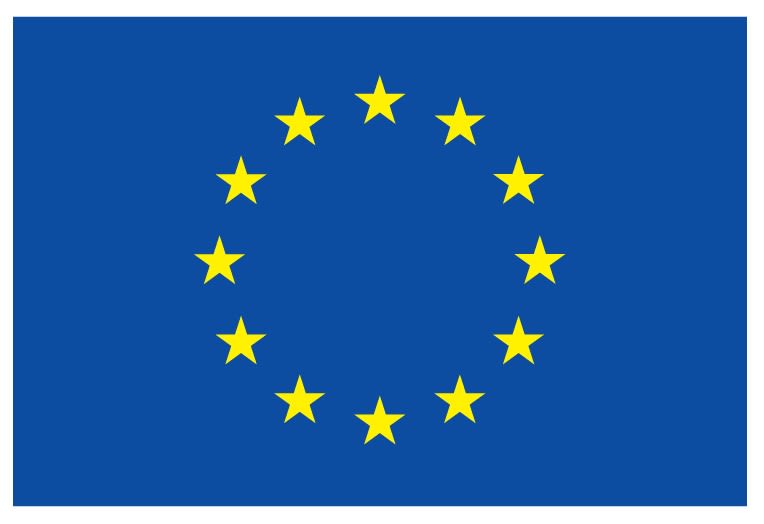EU Enlargement
Ukraine, Moldova and Georgia

The European Union currently has 27 Member States. Each European state wishing to join needs to get ready to implement the EU’s policies and legislation. The conditions of acceding to the EU are set as a result of EU accession negotiations.

The European Commission every year adopts its enlargement package - a strategy document on EU enlargement policy and a set of reports monitoring the progress made by candidate countries and potential candidates.
In the 2023 Enlargement Package, the Commission recommended opening accession negotiations with Ukraine and Moldova, and to grant candidate status to Georgia, on the understanding that Georgia meets certain steps.
This page takes you through the package, the enlargement process and each country's progress. Content is also available in Armenian, Azerbaijani, Belarusian, Georgian, Romanian, Ukrainian and Russian.
The package
Every year, the European Commission adopts an Enlargement Communication, outlining its recommendations for the enlargement process.
The Communication is accompanied by reports, which provide a detailed assessment of the state of play and the progress made by candidate countries and potential candidates on their respective paths towards the European Union.
This assessment focuses on implementation of fundamental reforms, and contains clear guidance on reform priorities. The Communication and the reports together constitute the “Enlargement Package”.


The reports
Ukraine's EU path
On 28 February 2022, Ukraine applied for EU membership. On 17 June 2022, the European Commission issued its opinion on the application. Based on the Commission’s recommendations, the European Council recognised Ukraine's European perspective and granted the country candidate status on 23 June 2022. On 8 November 2023, as part of its Enlargement Package, the Commission published its report on Ukraine, recommending to open accession negotiations.
Ukraine report
In the 2023 enlargement communication,, the European Commission said Ukraine had made substantial progress on addressing seven key reforms identified in 2022.
"The Commission considers that Ukraine sufficiently fulfils the criteria related to the stability of institutions guaranteeing democracy, the rule of law, human rights and respect for and protection of minorities," the EC said.
The report found that the country had established a transparent pre-selection system for Constitutional Court judges and had reformed judicial governance bodies. It said Ukraine had developed its track record of high-level corruption investigations and convictions, and that it had taken positive steps in a wider and systemic effort to address the influence of oligarchs. The country had also demonstrated its capacity to make progress in aligning with the EU acquis, even during wartime, the EC said.
Ukraine's EU path
Candidate status was granted on the understanding that Ukraine take some key steps. The Commission monitors their progress and reports on them, as part of its regular enlargement package.
Click here to find out more about the EU's support for Ukraine and its path to membership.
Moldova's EU path
The Republic of Moldova applied for EU membership in March 2022. On 17 June 2022, the European Commission issued its opinion on the application. Based on the Commission’s recommendations, the European Council recognised Moldova's European perspective and granted the country candidate status on 23 June 2022. On 8 November 2023, as part of its Enlargement Package, the Commission published its report on Moldova, recommending to open accession negotiations.
Moldova report
In its 2023 enlargement communication, the European Commission said Moldova had made important progress on the nine steps identified by the Commission in its 2022 opinion.
“The Commission considers that Moldova sufficiently fulfils the criteria related to the stability of institutions guaranteeing democracy, the rule of law, human rights and respect for and protection of minorities,” the EC said.
The report noted that the country had launched a comprehensive justice reform. It said Moldova had reformed its anti-corruption bodies and increased the number of investigations and convictions in corruption cases, while also adopting and implementing a de-oligarchisation action plan, and acting to fight organised crime. The report added that the country had adopted a public administration strategy and had worked to reform public finance management and public procurement. The Commission also noted that Moldova had enhanced the participation of civil society in the decision-making process and had strengthened the protection of human rights.
Moldova's EU path
On 28 June 2023 European Commission President Ursula von der Leyen presented a Support Package for the Republic of Moldova with five priorities aimed at addressing the impact of Russia’s war of aggression against Ukraine, and bringing Moldova closer to the European Union.
Click here to find out more about the EU's support for Moldova and its path to membership.
Georgia's EU path
Georgia applied for EU membership in March 2022. On 17 June 2022, the European Commission issued its opinion on the application. Based on the Commission’s recommendations, on 23 June 2022 the European Council recognised Georgia’s European perspective and suggested granting the country candidate status once certain priorities are met. On 8 November 2023, as part of its Enlargement Package, the European Commission recommended that the Council grant Georgia the status of a candidate country, on the understanding that a number of steps are taken by Georgia.
The Commission welcomed the reform efforts undertaken by Georgia in line with the country’s constitution, which envisages its integration into the EU as a priority for the country.
Georgia report
The European Commission’s 2023 report on Georgia notes that in relation to the twelve priorities specified in its initial Opinion of June 2022, Georgia has adopted legislative acts and policy actions on gender equality and on fighting violence against women, on taking into account European Court of Human Rights judgments in Court deliberations, and on organised crime. It has also appointed a new Public Defender. It highlighted, however, that the reform process had been hampered by continuing political tensions, deep polarisation, and the challenges of building consensus on key matters of national interest.
The Commission recommended that Georgia be granted the status of candidate country on the understanding that action be taken in a number of areas including to fight disinformation and foreign information manipulation, improve alignment with the EU common foreign and security policy, address the issue of political polarisation, ensure a free, fair and competitive electoral process, and ensure a systemic approach to de-oligarchisation and a holistic and effective judicial reform.
Georgia's EU Path
Georgia has taken steps to strengthen engagement with the EU and increased the pace of reforms in recent months to address the twelve priorities identified in the Commission Opinion on its membership application.
In light of the results achieved, the European Commission recommends that the Council grants Georgia the status of a candidate country on the understanding that a number of steps are taken.
Click here to find out more about the EU's support for Georgia and its path to membership.
How does accession work?
How do the negotiations work?
Negotiations
Negotiations are divided into 35 negotiating chapters, grouped under 6 thematic clusters. Negotiations on each cluster open as a whole – after the country fulfils the opening benchmarks. Each chapter will be dealt with individually with respect to its provisional closure.
Fundamentals
Negotiations on the fundamentals open first and close last; progress under the fundamentals’ cluster will determine the overall pace of negotiations.
What is key in the process?
Key values
A number of cross-cutting policy issues are of concern to most countries aspiring to become members of the European Union. These include the importance of the rule of law, civil society, protection of human rights, and the freedom of expression and media. You can find out more about key values and policies here.
Key terms
The following are just a few of the terms which specifically relate to the accession process. You can find the full glossary in English here.
Accession criteria
The accession criteria, or Copenhagen criteria (after the European Council in Copenhagen in 1993 which defined them), are the essential conditions all candidate countries must satisfy to become a member state. Find out what they are.
EU acquis
The acquis is the body of common rights and obligations that is binding on all the EU member states. It is constantly evolving. Find out what it includes.
Candidate countries
An applicant country for European Union membership may be granted candidate country status by the European Council on the basis of a recommendation by the European Commission.
Candidate country status does not give a right to join the Union automatically. The Commission examines the application in light of the accession criteria (Copenhagen criteria) and draws up an opinion, while the European Council decides to open accession negotiations with the candidate country.
Find out more
The 2023 Enlargement Package provides a detailed assessment of the state of play and respective paths towards accession made by Albania, Bosnia and Herzegovina, Kosovo, Montenegro, North Macedonia, Serbia, Turkey, and for the first time Ukraine, the Republic of Moldova and Georgia.
The mission of the European Commission's Directorate-General for Neighbourhood and Enlargement Negotiations (DG NEAR) is to take forward the EU's Neighbourhood and Enlargement policies. DG NEAR assists those countries with a perspective to join the EU in meeting the criteria defined by the Treaty of European Union and the European Council.
Accession is and will remain a merit-based process, fully dependent on the objective progress achieved by each country. You can find detailed information about each country's status here.





